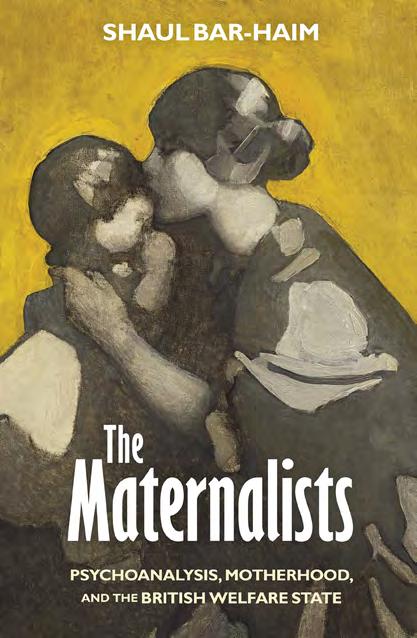
1 minute read
Political Theory
The Maternalists
Shaul Bar-Haim
The Maternalists explores how mid-twentieth-century British psychoanalysis created a new mother-centered culture, which after 1945 would shape dramatically both welfare ideology and the British welfare state itself. The book reveals a cultural and political attraction to maternalistic thinking after the First World War, which drew rhetorical and conceptual resources from psychoanalysis. This new public discourse was not necessarily one of motherhood as such, but of the ways in which Britons, both women and men, imagined the value of a “maternal role” in and for the public sphere. Shaul Bar-Haim shows how, after the Second World War, psychoanalytically oriented maternalism would become part of a public political discussion, influencing policy makers, educators, and the psychosocial professions as a whole.
Shaul Bar-Haim is Senior Lecturer in the Department of Sociology at the University of Essex.
Intellectual History of the Modern Age
“The Maternalists provides at once a highly original interpretation of key figures in post-Freudian psychoanalysis and a novel take on the ideas that animated the expansion and reformation of the British welfare state.”—Dagmar Herzog, author of Unlearning Eugenics
“The Maternalists is a riveting contribution both to our understanding of the social influence of psychoanalytic thought and the meanings of the welfare state.”—Lisa Appignanesi, author of Mad, Bad, and Sad
August
History, Public Policy, Sociology 352 pages | 6 x 9 978-0-8122-5315-3 | Hardcover $65.00s | £52.00 978-0-8122-9964-9 | Ebook $65.00s | £52.00 World Rights




